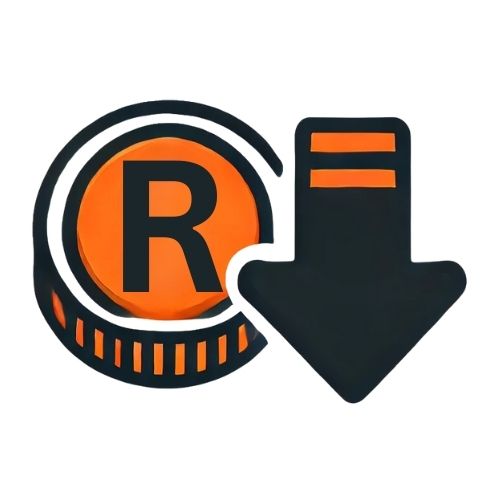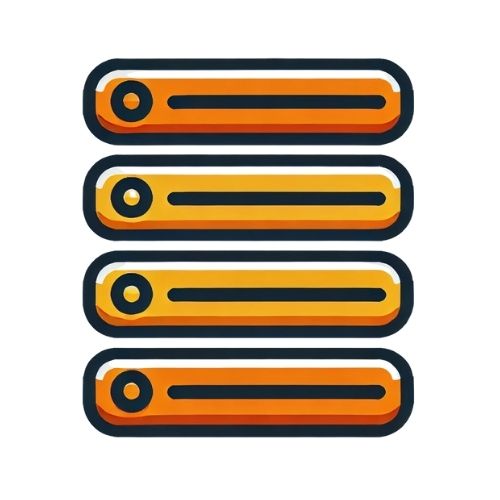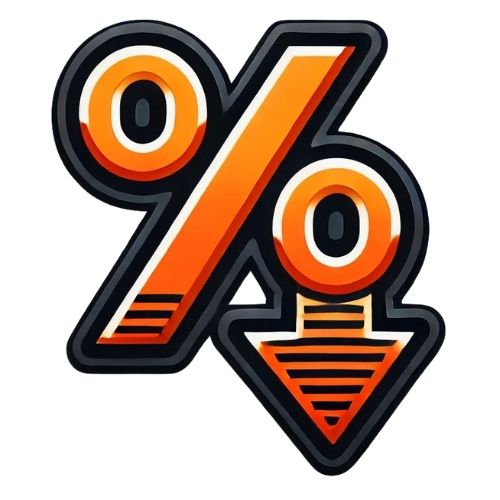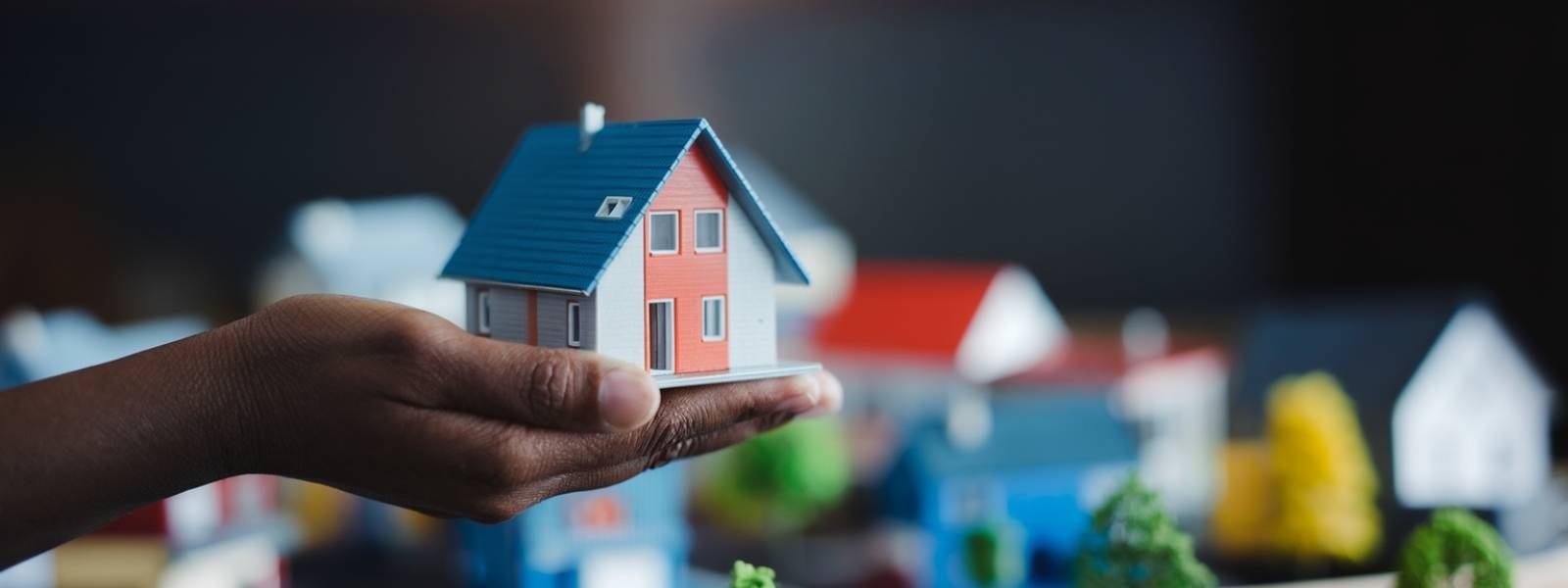Arcadia Finance helps you in the search of loans from different banks and lenders. Fill in a free application and get loan offers from up to 16 lenders. We work with well-known, trusted, and NCR-licensed lenders in South Africa.
When purchasing a home, it’s common to pay a deposit, which typically ranges from 10% to 20% of the property’s purchase price. After this initial payment, the lender covers the remaining amount through a home loan, provided your application is approved. While there are exceptions, such as 100% home loans designed for first-time buyers without deposit savings, a significant upfront payment is generally expected.
How Much Deposit Do You Need to Buy a House in South Africa?
The standard home loan term in South Africa is typically 20 years, and most lenders expect a deposit of around 10% of the purchase price.
For example, on a property valued at R2 000 000, a 10% deposit would equal R200 000. If you have already saved R100 000 (though saving more would be advantageous), you can use a savings calculator to determine the additional amount you need to save each month, based on your deadline for the deposit.
Having a clear understanding of your deposit goal allows you to adopt a focused savings strategy. Setting a monthly budget is crucial. Additionally, consider taking steps to reduce any outstanding credit card debt, as this can enhance your overall financial position and make it easier to reach your deposit target.
About Arcadia Finance
Effortlessly secure your loan with Arcadia Finance. Take advantage of zero application fees and choose from 16 trusted lenders, all regulated by South Africa’s National Credit Regulator. Experience a smooth, straightforward process with personalized options that meet your financial goals.
The Difference a Deposit Makes on a Home Loan
A deposit signifies your commitment to both the seller and the lender when purchasing a home. If possible, paying more than the standard 10% deposit can be highly advantageous. This approach can shorten your loan term, lower monthly payments, and often lead to more favorable interest rates.
Even if you qualify for a 100% home loan, saving for a deposit remains beneficial. Full-coverage home loans are uncommon, as few buyers secure loans that cover the entire purchase price of their ideal home. Instead of focusing on the challenges of obtaining a 100% home loan, consider these compelling reasons to save for a deposit:

Your Monthly Instalment Will Be Reduced
A larger deposit reduces the amount you need to borrow, leading to lower monthly instalments. The less you borrow, the more manageable your repayments become, which also enhances your chances of qualifying for a loan.
For instance, a R100,000 deposit on a R1 million property can decrease monthly payments from over R7,900 to just above R7,100, resulting in annual savings of more than R9,000. Increasing your deposit to 15% or 20% can lower your payments by approximately R400 per month, translating to annual savings exceeding R18,600. Therefore, opting for a substantial deposit is a strategic approach for manageable repayments.

Expanding Your Choices
Saving for a deposit not only increases your affordability but also expands your options. If you qualify for a R1 million loan, which typically requires a monthly income of about R26,000, a R100,000 deposit might enable you to consider properties worth R1.1 million without stretching your budget. With a deposit, you gain the flexibility to lower monthly payments or explore higher-value properties that align with your financial goals.

Reduced Interest Costs
Making a deposit can significantly reduce the total interest you pay over the life of your loan. For example, with a R1 million home loan over 20 years at a 7.25% interest rate, a 10% deposit could decrease total interest from approximately R897,000 to R807,000. A 15% deposit may increase your savings to nearly R135,000, while a 20% deposit could lead to savings exceeding R180,000.
These figures illustrate the advantages of saving for a deposit and can help you stay motivated. If saving feels like a sacrifice, remember the long-term benefits and keep pushing forward.
In addition to saving for a home loan deposit, it may also be wise to set aside funds for bond and transfer costs.
Taking Out Personal Loans to Fund Deposits
Recent data indicates that South African home buyers are making larger deposits than in previous years. According to ooba Home Loan’s latest figures for Q4 2023, the average deposit paid by first-time home buyers has risen by 23.7% compared to the previous year.
It’s encouraging to see young buyers prioritising deposits; however, insights from the FNB Property Barometer reveal that some buyers are turning to personal loans to cover these costs. FNB estimates that approximately 5% of home buyers are using personal loans to enhance their chances of securing a home loan. For these buyers, the potential downsides of personal loans—often accompanied by interest rates exceeding prime—are deemed worthwhile for the long-term benefit of having a substantial deposit.
A significant advantage of providing a deposit is that it bolsters your bargaining power with lenders. This can lead to a lower interest rate, resulting in reduced monthly repayments and potentially shortening the loan term.
Bank Approval Rates for Full Home Loans Remain High
Despite the potential drawbacks of using a personal loan for a deposit, recent shifts in bank lending practices indicate that while having a deposit can be advantageous, it is not always necessary to secure a home loan.
Data from ooba Home Loan shows that bank approval rates for zero-deposit loans have experienced a slight decline in the most recent quarter. Nevertheless, customers applying for 100% home loans have maintained an average approval rate of 82.3%. This reflects banks’ ongoing willingness to lend at high loan-to-value ratios, even when applicants do not provide a deposit.
It’s important to note that zero-deposit home loans typically come with higher interest rates and extended repayment periods. Prospective buyers may benefit from postponing their purchase plans by one or two years, allowing them to save for a deposit organically rather than relying on a personal loan or a zero-deposit mortgage.
Comparing Home Deposit Requirements Across South African Banks
When planning for a home deposit, it’s essential to understand the deposit requirements set by various South African banks, as each institution may have different criteria based on factors such as loan-to-value (LTV) ratios, applicant credit scores, and property value. Below is an overview of how some major banks in South Africa approach home deposit requirements:
| Bank | Typical Deposit Requirement | 100% Home Loans Availability | Special Programmes/ Features |
|---|---|---|---|
| Standard Bank | 10% of property value; higher deposit may yield better rates. | Available for first-time buyers meeting affordability criteria. | ‘MyMo Home Loan’ with 100% financing for specific properties. |
| Absa Bank | 10% to 20%, with lower requirements for strong credit profiles. | Available for first-time buyers in specific income brackets. | ‘Ready to Buy’ programme for financial planning assistance. |
| Nedbank | 10%, potentially higher based on credit rating and loan size. | Offered to first-time buyers with specific credit criteria. | ‘Buy-to-Let’ loans with flexible deposit options. |
| FNB (First National Bank) | Generally 10%, with 10%-20% preferred for better terms. | Available, mainly for strong financial profiles. | ‘NAV Home’ platform for budgeting and deposit tracking. |
| Capitec Bank | 10% to 20% depending on financial profile. | Selective offering for clients with solid credit scores. | Online affordability assessment tools with SA Home Loans partnership. |
Preparing Financially for a Home Deposit
Saving for a home deposit is one of the first and most important steps on the journey to homeownership. By creating a well-structured savings plan, potential buyers can make their deposit goal more achievable and reduce financial stress along the way. Here’s a practical approach to setting up a roadmap for deposit savings:
Set a Monthly Savings Target
Begin by determining the total deposit amount needed, typically ranging from 10% to 20% of the property’s purchase price. For example, if you aim to buy a R1 million home, a 10% deposit would require saving R100,000. Once you have this figure, calculate a monthly savings goal based on your timeline for purchase. A savings calculator can help break down how much you need to save each month to reach your target by your desired purchase date.
Evaluate Income Sources
Assess all your income sources to understand how much you can realistically set aside each month. This could include your salary, bonuses, freelance earnings, or investment returns. Consider opportunities to increase your income, such as taking on additional work or investing in skills that could lead to a promotion or salary raise. Every extra income source can accelerate your progress toward the deposit goal.
Identify and Reduce Unnecessary Expenses
One of the most effective ways to free up funds for savings is to reduce your monthly expenses. Review your spending habits, focusing on non-essential items such as dining out, entertainment subscriptions, or impulse purchases. Redirecting this money toward your deposit can significantly speed up your savings. Additionally, cutting back on high-interest debt, like credit card balances, can further enhance your savings by lowering interest payments over time.
Regularly Track and Adjust Your Budget
Consistently review your progress to stay on track. Check your budget and savings monthly, making adjustments as needed. If unexpected expenses arise, try to compensate by increasing your savings in the following month or cutting back on discretionary spending. Tracking your progress will also highlight areas where you could achieve further savings, such as reducing utility bills or finding lower-cost alternatives for essential items.
Open a Dedicated Savings Account
Establishing a separate savings account specifically for your deposit can help safeguard these funds from daily expenses. Opt for a high-interest savings account or a tax-free savings account to allow your savings to grow over time. Having a dedicated account also provides a clear picture of your progress, helping keep you motivated as you move closer to your goal.
Automate Monthly Deposits
Setting up automated transfers to your savings account each month ensures consistency without requiring much thought. Automation simplifies the saving process and promotes a disciplined approach, ensuring that funds are allocated to your deposit savings before being spent on other expenses.
Conclusion
While some South African banks provide 100% home loans, saving for a deposit remains a wise financial choice for prospective homeowners. A deposit not only reduces the loan amount and monthly repayments but can also increase the likelihood of securing a favourable interest rate, resulting in substantial savings over time.
Frequently Asked Questions
A home deposit loan is a personal loan or financing option that some buyers use to cover the deposit on a property. While it can help buyers secure a property sooner, it increases total debt and monthly obligations. Many financial experts recommend saving for a deposit directly instead of taking out an additional loan.
Most South African banks expect a deposit of 10% to 20% of the property’s purchase price. For instance, if a home costs R1 million, a 10% deposit would be R100,000. Some banks offer 100% home loans, particularly for first-time buyers, but these may come with higher interest rates.
Yes, many South African banks provide 100% home loans, especially to first-time buyers with a strong credit profile and stable income. However, opting for a 100% loan can result in higher monthly repayments and interest over the loan’s duration, making a deposit advantageous if you can save for one.
While some buyers utilize personal loans for their home deposit, this strategy can increase total debt and monthly repayments. Personal loans typically have higher interest rates than home loans, so it’s crucial to evaluate your budget and credit score before committing to this type of loan.
Saving for a deposit directly can reduce your loan amount, lower monthly repayments, and potentially improve the interest rate on your home loan. Furthermore, it strengthens your financial position, making you a more attractive applicant to lenders and lowering overall borrowing costs over time.






